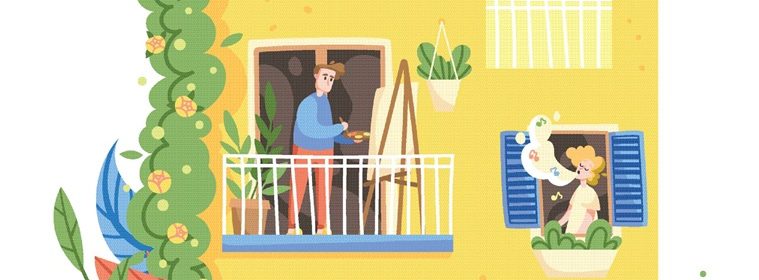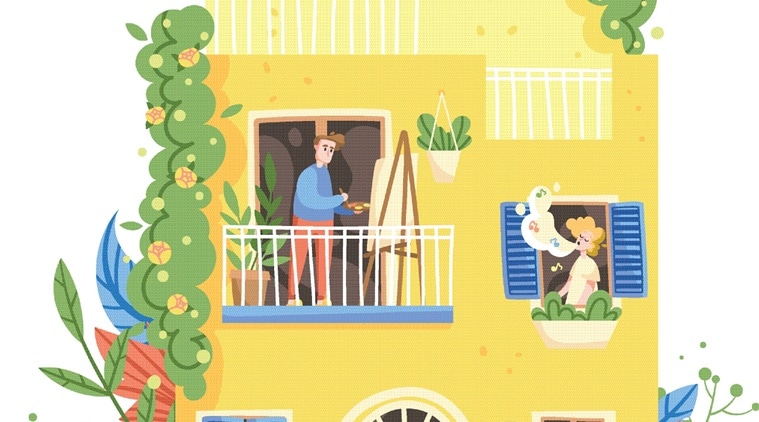Synthroid cholesterol

Where to buy cheap propranolol best price without prescription
It is easy to forget in a crisis, but being kind to each other is what has helped the human species survive over two millennia
It might seem a little frivolous to talk about joy in the present times of hustle, stress and survival. But, maybe, that is the reason we need it more than ever before. Joy is not optional; it is non-negotiable for us right now. We need to nourish our spirit, our families and our community in every possible way we can.
Daily practice: In times of corona, joy is not something that will come to us easily. We need to work towards it, practice it daily and deliberately. Daily, because it is so easy to slip back to our default setting of constant fear. Deliberate, as in making a ritual of setting our intention every morning and staying mindful of it as if our life depended on it. It could be as simple as, “I vow to find joy in the smallest things today.” Practice, as in accepting that it is a skill that we have to work at. It is not a destination but a direction. In the ebb and flow of life, there will be days when that joy will be light and luminous and there will be days when the darkness might seem impenetrable, leaving us with barely a flicker of the glow.
“I see you”: Do you remember how the Na’vis greeted each other in the movie Avatar (2009)? With a gentle “I see you”. The divine in me sees and honours the divine in you. So simple yet so exquisite. We want to be seen, to be recognised, to be acknowledged. Maybe, that is why we are all madly chronicling our lives on social media with a flurry of Insta and Facebook lives, webinars, etc. Isolated in our homes, we want to show the world “I matter and my life matters”. However, there is always a bit of dissonance as the online “seeing” cannot match up to the real thing. Do you remember, as a child, the experience of having somebody’s eyes “light up” when they saw you? As if a bulb had been switched on inside which shone through their eyes? Experience the joy that warms your heart as you remember that. Go and give that to somebody you love at home. Look into their eyes, smile and let the love shine in your eyes. See the joy spread to them and boomerang right back at you.
Five joy-diet: An early morning cup of tea in the balcony, an invigorating shower, hot toast with butter in the breakfast. Tiny little things that change the tone of the day and bring lightness to our heart. I would suggest that you make a “five joy-diet” — five things that you would do every day to pepper your life with more joy. For that, first, make a list of your joys. It could be really bizarre, “no big deal” things but write them down anyway. Stick it somewhere prominent. Then, make sure that every day you include at least five of them and savour every moment of it. Our human brain is keenly wired to look out for, register and file all things that are going wrong around us. Psychologists call it the “negativity bias.” It is all the more reason to start a counter-practice of five joy-diet. There will be a voice in your head that might say, “Not now, maybe later when things are better.” However, if anything, corona has taught us to find joy in the gratitude of being alive now.
PQ: Playfulness needs to be at the core of who we are as people and how we live our lives. I believe that our playfulness quotient (PQ — a term I coined) is a single determinant of our quality of life amid all the suffering. Have you noticed how when you have to bathe your dog or make him do something that he dislikes he reacts by slowing down or cowering? However, as soon as the ordeal is over, he jumps up and is springing around the house as if shaking off all the stress. In a moment or two, the whole experience is behind him and he is playful and frisky again. It is very similar in little children. After a painful experience like an injection or a taste of bitter medicine, they are back on their feet and running up and down. Again, it seems they are shrugging off the negative residue energy through their frenzied activity. Imagine if we could learn to do the same, every time the stress of corona envelopes us — laugh out loud, break out in a jig, goof around with our kids, belt out a Bollywood song, feel invigorated and get back to the business of life again.
Creative buzz: Discover the artist in you — it could be anything from painting, drawing, origami, baking, garden landscaping, decorating, collaging, photography, making movies, pottery, sculpting, scrapbooking, dancing, acting or singing. Keep some time every day, or every weekend for it. Smile at people who tell you to stop fooling around when there is so much hardship in the world. Stick your tongue out to that perfectionist voice in the head which tries to art-shame you. In Dr Seuss’s words, “These things are fun, and fun is good.”
Doing nothing: Take regular breaks of just day-dreaming, being spaced out and doing nothing. Step off the treadmill of life and just be. If the guilt rears its head with “Be productive. Why are you wasting time?”, ask it to take a chill pill. Besides the fact that being idle can replenish our weary souls, it can do wonders to our creative inspiration and imagination. Studies on creativity have highlighted that the metaphorical “eureka” or “aha” moment generally comes when people are doing something completely unrelated to the task. It always amazes me how playful breaks help me get “unstuck” whenever I am feeling a little overwhelmed.
Survival of the kindest: We are hearing a lot about the problematic notion of “survival of the fittest”, misattributed to Charles Darwin. It somehow makes us feel that the only way we can survive the pandemic is by watching out for ourselves — a scary dystopia with a slippery slope of survival and the only way we can reach the top is by elbowing others out. In reality, more than “survival of the fittest”, it is the “survival of the kindest” that has made our species survive for over two millennia. It is our only hope for the future. We have to stand up to forces that divide us and constrict our hearts towards people who are marginalised. Still not convinced enough? Remember the last time you reached out and helped somebody and let the warm glow of joy wash over you? Now, take out your credit card and contribute. Let’s make our acts of kindness go viral.
Dr Shelja Sen is therapist, writer and co-founder of Children First, a child & adolescent mental health institute. Write to [email protected]
? The Indian Express is now on Telegram. Click here to join our channel (@indianexpress) and stay updated with the latest headlines
For all the latest Parenting News, download Indian Express App.
Source: Read Full Article



